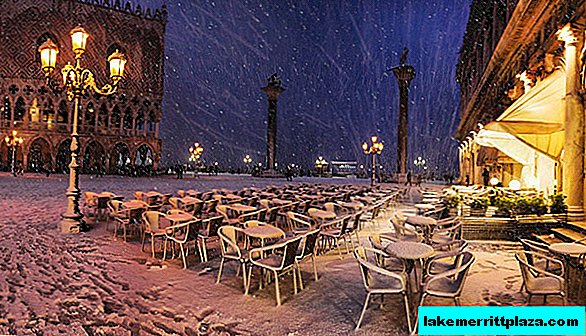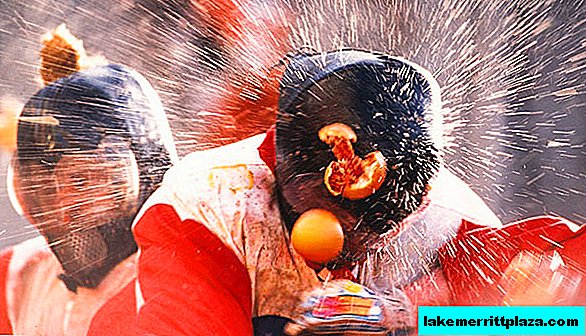In the last issue, the legions of the two consuls and the Octavian who joined them went on the warpath against Mark Anthony, who, in turn, besieged one of the conspirators and killers of Caesar - Decimus Brutus, who had consolidated his position in the city of Mutin and looked sadly at what was happening.
If the consuls Girtius and Panza thought that citizen Anthony was cool and knew only how to file state budgets and appropriate the treasury, then they were cruelly mistaken. Mark, in addition, was very savvy in defending his right to corruption and limitless enrichment. The consul with the name of the famous squire was the first to realize this. Carelessly entering the ambush prepared by Anthony on the way to Mutina, Panza ended, as did his army.
However, this did not affect the balance of power too much - “The Queen has a lot,” as the British sailors said, escorting another British Empire ship under water. So, the Roman Republic and the Senate also had legions in quantity, as Antony found out, who had already begun to celebrate the victory - the consul Gertius and Octavian suddenly came up with fresh strength.
The onset of darkness saved Mark from total defeat, but could not save from the final defeat. At the end of April, 43 BC, Senate forces visited Anthony on a guest visit., after which he had to hurry away as far as Narbonne Gaul with a handful of survivors. They did not pursue him for many reasons.
Firstly, the consul Girtius somehow very cleverly and successfully died for Octavian during his last attack, after which Guy was left to command the troops alone. Secondly, Decim Brut, emaciated and starving during the siege, was unable to cope with the chase and finishing off on his own, and Octavian basically did not want to somehow help one of the killers of the "father". Thirdly, in Rome, after listening to the news, hit the rampant fun and partying and finally beat Anthony. And on Octavian at the same time - the Moor did his job, the Moor well done, let him take a pie from the shelf and no longer shine.
At the request of Guy and Cicero to make them consuls, since the past so quickly left the race, the council refused. One, they say, is young and snotty yet (as if a year ago Octavian was not handed all kinds of posts, spit on the age set for them), and the second one has too much influence. But Caesar’s son was praised for solving the problem and awarded him a standing ovation - a kind of under-triumph. A full triumph went to Decim Brutus, who had been victoriously sitting under siege for several months.
Frustrated by the similar windiness and inconstancy of the senators, Octavian began to show his displeasure. First, carefully, diplomatically, probing alternative political opportunities, for example, by releasing the captured soldiers of Anthony to him in Narbonne Gaul. Then, gloomily watching the Senate having fun and dancing, repealing all the laws passed by Mark before, and exalting Caesar's killers, he did not interfere with the reinforcements that had left Italy for Anthony, and completely refused to communicate with the triumphant sitter Decim Brutus.
He, meanwhile, shining with happiness, returned to the war and leisurely, fanned with glory and honor, marched to finish off Anthony, who was broken, miserable and squandered in his Gaul.
Reality did not coincide slightly with Brutus' hopes. Thanks to Octavian who turned away in time, Mark received at his disposal 8 legions. With similar powers, he was able to start an active dialogue with the governor of Gaul, Lepidus. First, he wanted reluctantly to comply with the Senate order, which stated the need for the speedy liquidation of the rebel, but Anthony's unexpected increase in strength, his skillful oratory talent and common interests (many did not like the conspirators and merry fellow from the Senate) did their job - first on the side of Mark, as the simplest supporter of the slain Caesar, ordinary soldiers began to cross, and then Lepidus himself with 7 more legions.
To win over the remaining forces that were present in that region was already a matter of technology for Anthony. As we said earlier, not only embezzlement and money-grubbing became famous for this “worthy” husband, but also a useful skill to get out of various scrapes with the help of cunning and a well-suspended language.
When a slow triumphant got to Anthony, his jaw dropped almost to the ground. Instead of several hundred shortcomings, which he was going to famously drive around the expanses of Gaul, Decimus Brutus met 23 (twenty three!) legions collected in just 2 weeks. Almost a world record, you need to give Mark Anthony its due.
Crazy from what he saw, he punched the brakes and tried to cut the reverse gear, but did not have time - when retreating by order of Mark, he was cut down by local Gauls.
Now, between the huge army of Anthony, offended by Rome, and the Senate, which continued its legislative uprising, there was only Octavian, who looked grimly at what was happening in the capital.
The local patricians, rejoicing (as we already know, prematurely) to destroy their enemies, began to abolish all orders of Anthony, including those aimed at increasing the loyalty of veterans and legionnaires - the distribution of land, money and other tasty buns to the defenders of the fatherland. Those, including those in the army of Octavian, began to resent and ask new uncomfortable questions to Guy Julius.
The previous question was: "Tell me, great one, why are we going to war against your father’s last comrade-in-arms and defend the ghoul who personally stabbed him with a knife?" and, which is characteristic, nobody removed this issue from the agenda. Now, material problems have been added to moral problems - and they have always been more important everywhere.
In such a situation, the young heir to the dictator could not make a hopeless final battle against the united horde of Anthony and Lepidus. To die defending ungrateful senators? No thanks.
In the early summer of 43, Octavian entered into a mutually beneficial contract with Mark. In the capital, they belatedly thought, Cicero tensed.
And what thoughts and tension will lead to, we will tell further.
History Fun specifically for Italy for me.








